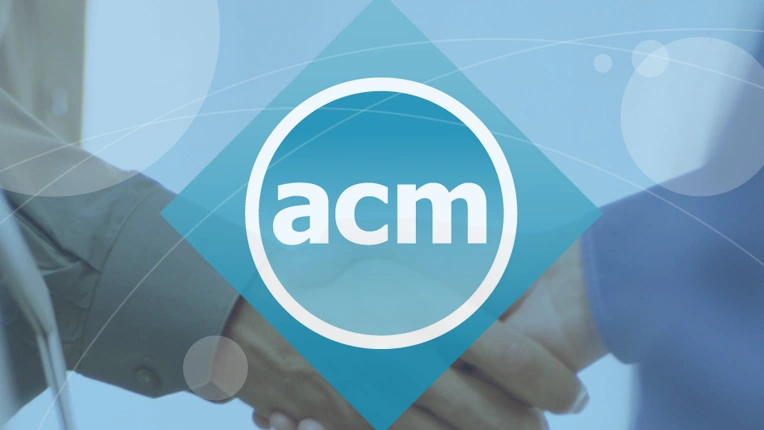Engineers and computer professionals have a significant role in today’s world. They affect nearly everything we do on a daily basis. Whether it is cell phone use, computers, national security, health care, and even the world economy, nearly every industry and job profession is affected by technology. Therefore, it is important that computing professionals abide by a certain code of ethics for their profession.
The Association for Computer Machinery (ACM) has designed a code of ethics to steer computing professionals in the right direction when making professional decisions.
In this blog, we will discuss the ACM code of ethics for computing professionals. Let’s start by learning more about those who work in the field of computing.
Table of Contents
1. Who are computing professionals?
2. Association for Computing Machinery (ACM)
3. ACM Code of Ethics
Who are computing professionals?

Computing professionals are individuals who use their knowledge of computers and computing technology to create, design, maintain, or use computer-based systems. They may work in a variety of industries, including information technology, software engineering, telecommunications, healthcare, finance, manufacturing, and many more. [1]
Computing professionals include hardware designers, software engineers, database administrators, system analysts, and computer scientists. Most computing professionals have a computer science or related degree.
Computing professionals execute a variety of tasks
They are engaged in system design and develop specifications for new computer systems and instruction pipelines for superscalar processors, detect timing problems in embedded systems, test and validate software systems, restructure the back-end databases of inventory systems, examine packet traffic in local area networks, and propose security policies for medical information systems.
The tasks of computing professionals are critical since their actions impact computer systems, which in turn have an impact on the welfare of system users directly and indirectly.
For example, the software that controls an automobile’s automatic transmission should minimize gasoline consumption and, more significantly, protect the driver, passengers, other drivers, and pedestrians.
Why is a code of ethics important for computing professionals?
Professional ethics is a subject that all organizations, regardless of size, must address. Employees and other stakeholders are increasingly expecting technology businesses to be held to a higher responsibility for the public good.
Computing professionals are responsible for ensuring that the systems they build and maintain are reliable, safe, secure, resilient, dependable, usable, and accessible.
Since these tech systems impact nearly every industry and profession, the decisions that computing professionals make in their professional practice should be guided by a code of ethics. Moreover, the computing profession is continually evolving and there are new challenges that arise as a result of these developments.
Also Read: Engineering ethics [what is it and why is it important]
For instance, engineers developing AI technologies have increased professional responsibility, as the uncertainties of machine learning technologies and applications may lead to public hesitation toward them, especially as they are introduced into infrastructure.
The obligations of professionals to clients, employers, other professionals, and the public are stated explicitly in their professional codes of ethics or professional conduct for each discipline. The ACM organization has established similar codes for computing professionals.
Association for Computing Machinery (ACM)

The ACM is a worldwide scientific and educational computing society formed in 1947. The ACM is a non-profit professional membership organization with approximately 100,000 student and professional members as of 2019.
As the world’s largest computing society, ACM strengthens the profession’s collective voice through strong leadership, promotion of the highest standards, and recognition of technical excellence.
ACM brings together computing educators, researchers, and professionals to inspire dialogue, share resources, and address the field’s challenges.
ACM Code of Ethics
The ACM has developed a code of ethics for computing professionals, which serves as a guide for making decisions in the field. The code of ethics covers topics such as responsibilities to clients, employers, other professionals, and the public. The ACM members are expected to follow these codes and exhibit the highest level of professional competence and responsibility.
The ACM committee updated its Code of Ethics and Professional Conduct in 2018. The new rewrite of the ACM code of ethics and professional conduct has brought it up-to-date with new technologies and societal demands. This code encourages computing professionals to adhere to a set of ethical standards while working in the tech field.
The ACM professional code of ethics is divided into four sections. [2]
#1 General Ethical Principles: The first section states that a computing professional should contribute to human well-being, avoid harm, be honest and trustworthy; be fair and take action to not discriminate; respect the work required to produce new ideas, inventions, creative works, and computational artifacts; and respect privacy and honor confidentiality. These principles provide the fundament for ethical conduct.
#2 Professional Responsibilities: The second section deals with computing professionals’ responsibilities in regard to the tasks they perform. Examples of these responsibilities and business ethics are striving to achieve high quality; knowing and respecting existing laws pertaining to professional work; accepting and providing appropriate professional reviews; fostering public awareness; an understanding of computing, related technologies, and their consequences; and designing and implementing systems that are robustly and usably secure.
#3 Professional Leadership Principles: The third section is intended for managers and leaders. Examples of principles mentioned in this section are ensuring that the public good is the central concern during all professional computing work, managing personnel, and resources to enhance the quality of working life, creating opportunities for members of the organization or group to grow as professionals, and recognizing and taking special care of systems that become integrated into the infrastructure of society.
#4 Compliance With The Code: The fourth section ensures code compliance by stipulating that members of the ACM should adhere to, promote, and respect the principles of the code while also treating infractions of the code as incompatible with membership.
Also Read: Ethical Dilemmas in Engineering and Examples
The following is an example of the General Ethical Principles section from the ACM code of ethics: [3]
1. GENERAL ETHICAL PRINCIPLES
A computing professional should…
1.1 Contribute to society and to human well-being, acknowledging that all people are stakeholders in computing.
1.2 Avoid harm.
1.3 Be honest and trustworthy.
1.4 Be fair and take action not to discriminate.
1.5 Respect the work required to produce new ideas, inventions, creative works, and computing artifacts.
1.6 Respect privacy.
1.7 Honor confidentiality.
Note: For simplicity and space limitation, we’ve only included the headings of the sub-sections.
Bottom-line
The ACM code is aimed at aspiring and practicing computing professionals and expresses the conscience of the profession. The Code as a whole is concerned with how fundamental ethical principles apply to a computing professional’s conduct. The Code is not an algorithm for solving ethical problems; rather it serves as a basis for ethical decision making and ethical behavior when faced with ethical issues.
References:
[1] https://www.ideals.illinois.edu/bitstream/handle/2142/12247/ecse909.pdf
[2] https://www.infoq.com/articles/acm-code-ethics/
[3] https://www.acm.org/code-of-ethics




![Types of Engineers and What they Do [Explained]](https://www.engineeringpassion.com/wp-content/uploads/2022/04/types-of-engineers-and-what-they-do-280x210.jpg)





Leave a Reply